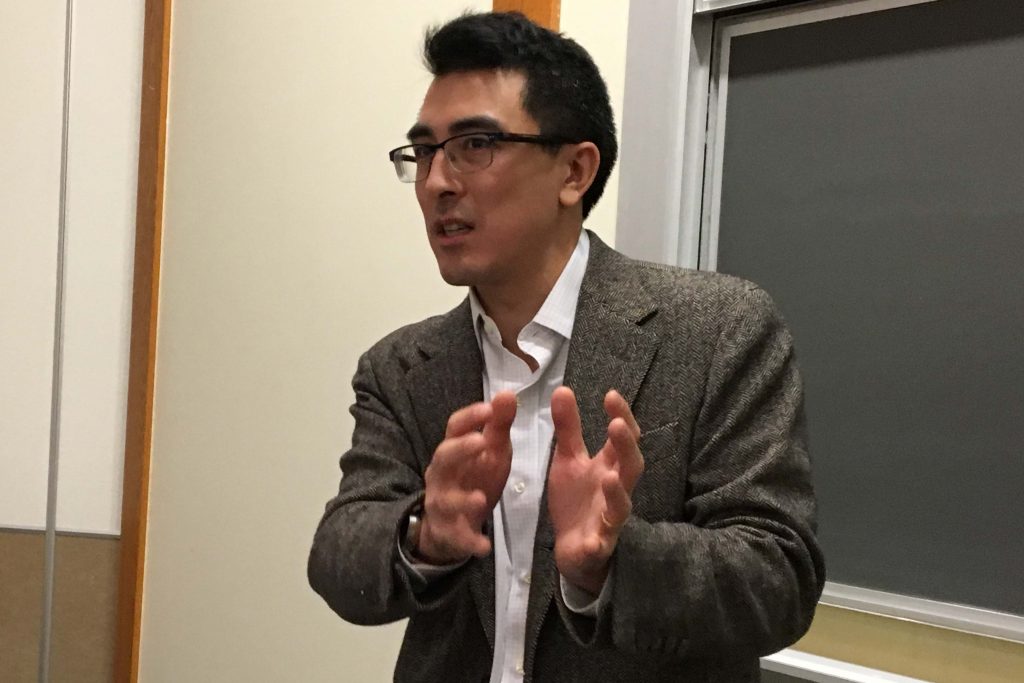No one should be subject to public humiliation and the trauma of being interrogated by police responding to a 911 complaint solely based on their racial profile. Yet it seems to happen all the time, said the ACLU’s Carl Takei ’07 during a speech at BC Law on October 25.
Takei heads the American Civil Liberties Union’s Living While Black On Campus Campaign and works out of the ACLU’s Trone Center for Justice and Equality, in New York. “White people using the police to eject black people from public space clearly echoes the history when the law explicitly relegated non-white people to second-class status, and used police to enforce that second-class status,” he noted.
The phenomenon, often called “living-while-black,” refers to instances where a person of color engaged in a normal daily activity prompts a wary person to call 911 for supposedly acting suspiciously or “looking out of place.”
Takei pointed to two recent incidents on Massachusetts campuses. One happened to an African-American student who was eating lunch; she was confronted by police responding to a 911 call about an individual who “seemed to be out of place.” It also happened to a longtime employee at another university; he was questioned by police stemming from a report of an “agitated” African-American male on campus.
Such incidents have become increasingly visible thanks to the prevalence of smart phone cameras and video footage of the confrontations disseminated through social media, Takei said.
These living-while-black experiences are by no means limited to college campuses, Takei said, but campuses are in a rather unique position to do something about them. Campus police can achieve reforms more quickly and easily than, say, municipal police, because their operations and bureaucracies are simpler and the authority to change policies lies in the hands of a few school administrators.
Since most colleges and universities aim to maintain a diverse student body, Takei argued, administrators who refuse to adopt policies that protect people of color from “weaponized bias” are “making it crystal clear that certain students will not be able to live as a full members of the campus community without being constantly questioned or threatened by campus authorities.”
Takei said the focus of the ACLU on campus reforms is based on the belief that once reforms in campus police forces become widespread, the policies and training practices they adopt will serve as a model for municipal law enforcement agencies everywhere.
The National Lawyers Guild and Boston College’s Black Law Students Association co-sponsored the event.


